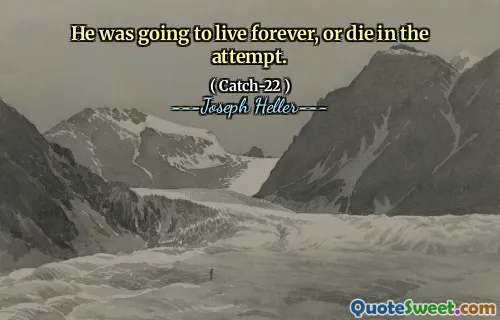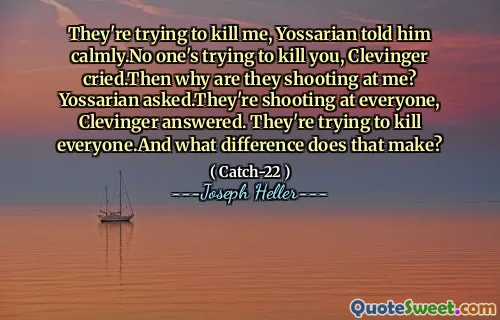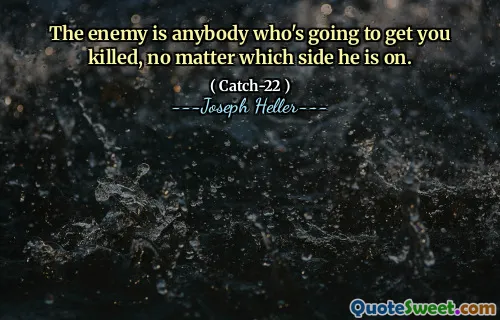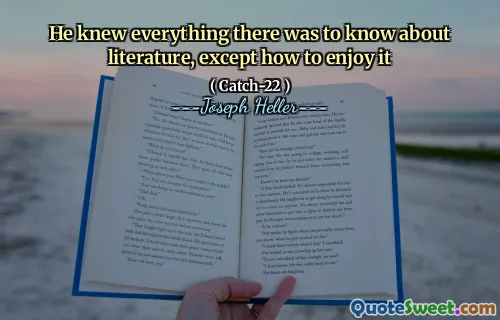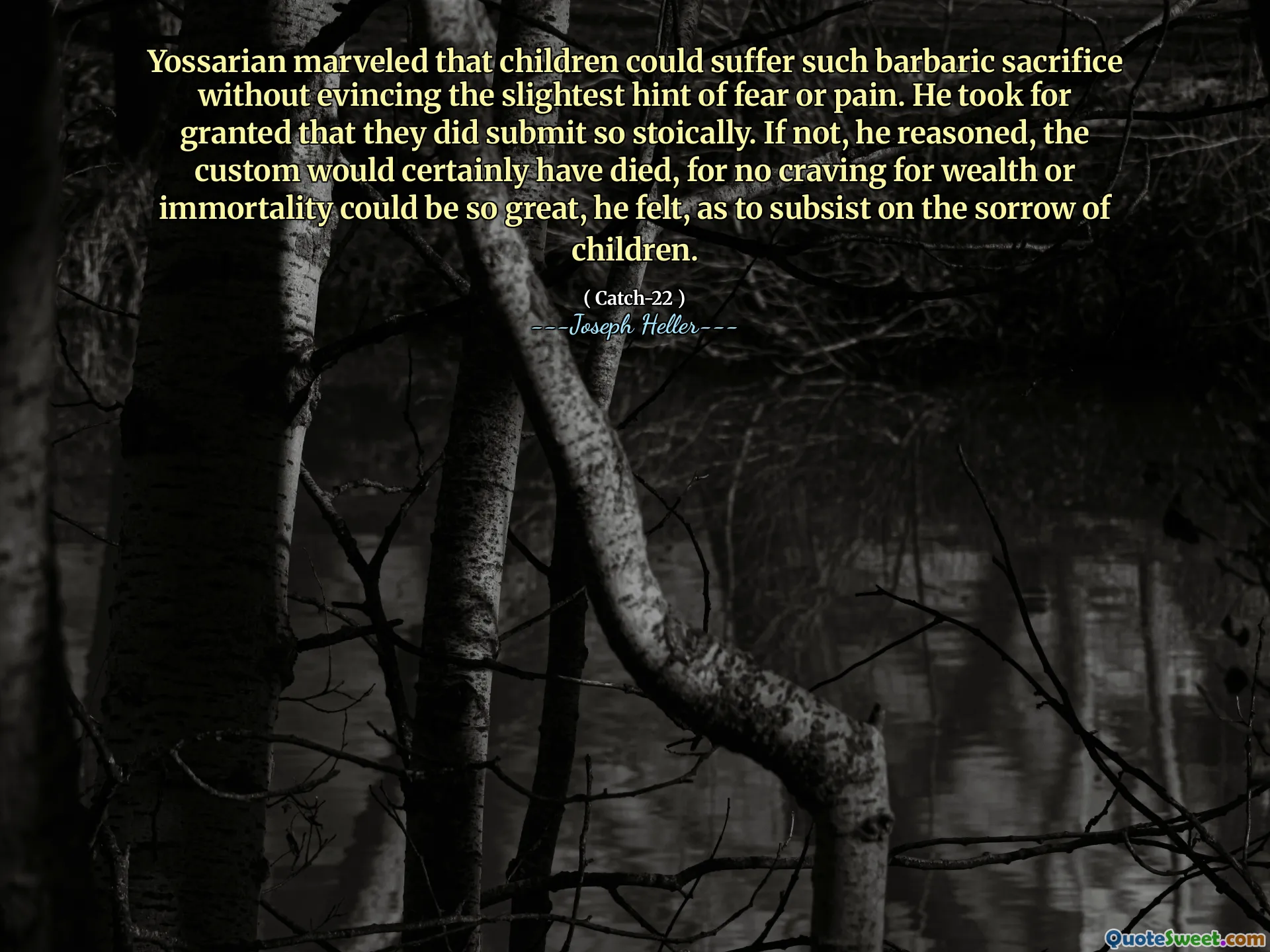
Yossarian marveled that children could suffer such barbaric sacrifice without evincing the slightest hint of fear or pain. He took for granted that they did submit so stoically. If not, he reasoned, the custom would certainly have died, for no craving for wealth or immortality could be so great, he felt, as to subsist on the sorrow of children.
In "Catch-22," Yossarian reflects on the disturbing reality faced by children who endure significant hardships without displaying fear or pain. He is struck by their ability to accept these harsh experiences with remarkable stoicism, suggesting that such resilience is inherent to their nature. This observation leads him to question the customs and traditions that allow for such suffering.
Yossarian concludes that if children truly exhibited their anguish, society would likely change to stop the cruelty. He believes that no desire for wealth or legacy could justify thriving on the suffering of innocents, indicating that human empathy should prevail over self-interest. This insight highlights the moral complexities within the narrative, drawing attention to the value of compassion in the face of societal norms.
